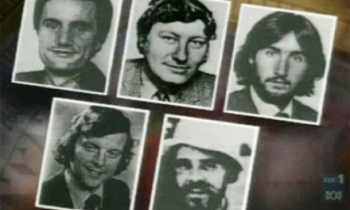THE likelihood of Irish Times editor Geraldine Kennedy and journalist Colm Keena going to prison diminished greatly yesterday when no motion for committal to prison was brought by the Mahon Tribunal over the controversial Bertie Ahern “dig-out” payments story.
The Mahon Tribunal yesterday started proceedings in the High Court aimed at compelling the newspaper to produce the document which led to a front page article revealing that the Taoiseach received substantial cash payments from businessmen when he was minister for finance in 1993.
Counsel for the Mahon Tribunal told the High Court yesterday that it wanted to “very effectively demonstrate” in the action against the Irish Times that the tribunal was not the source of information which led to the article.
Mr Denis McDonald SC said the only way to do that would be by getting information from Ms Kennedy and Mr Keena which might help the tribunal establish it was not the source of the information.
Because both journalists had refused to provide any such information, the tribunal was asking the court to order them to do so, he said. The tribunal, he added, was no longer seeking an additional order compelling the journalists to produce the documentation relied upon for the article.
This would be “futile” as they had confirmed the documentation had been destroyed, he said.
Mr McDonald was opening the action by the tribunal against both journalists, which is being heard by a three-judge divisional High Court consisting of the President of the High Court, Mr Justice Richard Johnson, Mr Justice Peter Kelly and Mr Justice Iarfhlaith O’Neill.
The proceedings arise from an Irish Times article of September 21, 2006, written by Mr Keena and headlined: “Tribunal examines payments to Taoi-seach”.
When summoned before the tribunal on September 26, both journalists refused to provide documentation or answer questions which might identify the source of the information on which the article was based.
Ms Kennedy told the Mahon Tribunal she had a duty to publish a “vital issue of public interest” that the Taoiseach had received payments from businessmen.
She told the tribunal the newspaper had received “an unsolicited and anonymous communication” about the payments which she considered the newspaper should verify and publish in the public interest.
She also told the tribunal that she had asked Mr Keena to destroy the documentation, and that was done.
She said this was done not out of disrespect to the tribunal and its important role but to protect sources.









